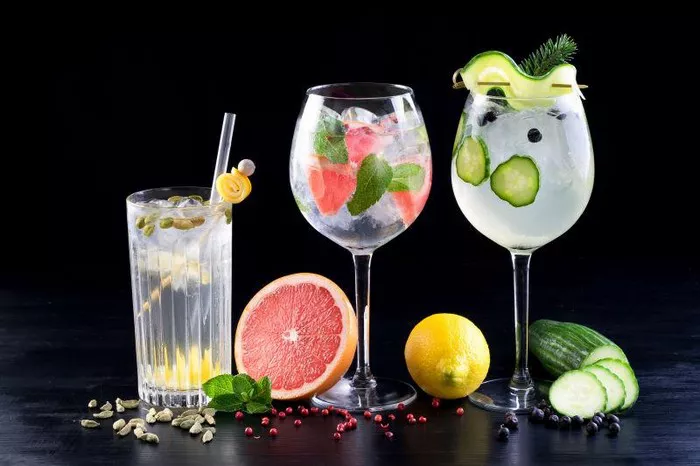The margarita, with its tangy citrus flavor and refreshing kick, is a beloved cocktail enjoyed by many around the world. However, amidst the lime juice and salt-rimmed glasses, there lies a fundamental question: what is the main alcohol component of a margarita? To understand the essence of this iconic drink, we must delve into its history, explore its traditional ingredients, and unravel the various choices of spirits that can be used to craft the perfect margarita.
Exploring Margarita Origins and Traditions
Before we can identify the main alcohol component of a margarita, it’s essential to understand the origins and traditions surrounding this popular cocktail. The exact origins of the margarita are shrouded in mystery and speculation, with several theories claiming to be the true genesis of this iconic drink. One widely accepted tale attributes the creation of the margarita to a Mexican bartender named Carlos “Danny” Herrera, who purportedly concocted the cocktail for a patron allergic to many spirits but not tequila, in the late 1930s.
Regardless of its precise origin, the margarita has evolved over the decades, becoming a staple in cocktail culture worldwide. Traditionally, a margarita consists of three primary ingredients: tequila, lime juice, and orange liqueur. These core components form the foundation of the drink, providing its signature balance of sweet, sour, and boozy flavors.
See Also: strongest cocktails
Tequila: The Heart and Soul of the Margarita
When pondering the question of what is the main alcohol component of a margarita, the unequivocal answer is tequila. Tequila is not only a quintessential ingredient in the margarita but also its defining spirit. Derived from the blue agave plant, tequila is a distilled alcoholic beverage with a rich history dating back centuries in Mexico.
Tequila comes in various types, each offering distinct flavors and characteristics that can influence the taste of a margarita. Blanco, or silver tequila, is clear and typically unaged, offering a crisp and vibrant flavor profile that shines in cocktails like the margarita. Reposado tequila is aged in oak barrels for a few months to a year, imparting subtle oakiness and complexity to the spirit, while añejo tequila undergoes longer aging, resulting in a smoother, more refined taste with notes of caramel and vanilla.
When crafting a margarita, the choice of tequila can significantly impact the overall flavor and character of the cocktail. Many bartenders opt for blanco tequila for its clean and bright flavor, which complements the tartness of lime juice and the sweetness of orange liqueur. However, reposado or añejo tequilas can add depth and complexity to the margarita, elevating it to new heights of sophistication and flavor.
Lime Juice: The Essential Citrus Component
In addition to tequila, lime juice plays a crucial role in the margarita, contributing its characteristic tanginess and acidity to the cocktail. Freshly squeezed lime juice is preferred for its bright and vibrant flavor, though some variations may utilize bottled lime juice for convenience. The acidity of lime juice balances the sweetness of the orange liqueur and enhances the crispness of the tequila, resulting in a well-rounded and refreshing drink.
When preparing a margarita, the ratio of lime juice to other ingredients is paramount to achieving the perfect balance of flavors. While personal preferences may vary, a typical margarita recipe calls for equal parts lime juice and orange liqueur, with a double portion of tequila to round out the drink. This ratio ensures that the lime juice remains a prominent component, imparting its zesty citrus notes without overpowering the other flavors in the cocktail.
Orange Liqueur: Adding Complexity and Sweetness
Completing the trifecta of traditional margarita ingredients is orange liqueur, which adds complexity and sweetness to the cocktail. Orange liqueur comes in various forms, with Cointreau and triple sec being popular choices among bartenders. These liqueurs are made from the distillation of orange peels and can range in sweetness and intensity of flavor.
In a classic margarita recipe, orange liqueur serves as a counterbalance to the tartness of lime juice, providing a touch of sweetness and depth to the cocktail. The orange notes in the liqueur complement the citrus flavors of the lime juice, while its sweetness enhances the agave undertones of the tequila. The result is a harmonious blend of flavors that tantalizes the palate and leaves a lingering impression with each sip.
Exploring Alternative Spirits in the Margarita
While tequila remains the undisputed star of the margarita, adventurous mixologists have experimented with alternative spirits to put a unique twist on this classic cocktail. From mezcal to rum, the possibilities are endless when it comes to reimagining the margarita with unconventional ingredients.
Mezcal, a smoky and complex spirit distilled from agave, offers a bold and distinctive flavor profile that can elevate the margarita to new heights. By substituting tequila with mezcal, bartenders can imbue the cocktail with smoky undertones and earthy notes, creating a more robust and intriguing drinking experience.
In recent years, rum has also emerged as a popular substitute for tequila in margarita recipes, particularly among tiki enthusiasts and rum aficionados. Dark or aged rums, with their rich and caramelized flavors, can impart a depth and complexity to the margarita that is reminiscent of classic rum cocktails like the daiquiri. When paired with lime juice and orange liqueur, rum adds a tropical twist to the margarita, transporting the drinker to sun-soaked beaches and exotic locales with each sip.
Conclusion
In conclusion, the main alcohol component of a margarita is undoubtedly tequila, which serves as the heart and soul of this iconic cocktail. From its humble origins in Mexico to its global popularity today, the margarita continues to captivate drinkers with its vibrant flavors and refreshing appeal. Whether enjoyed with traditional ingredients or reimagined with alternative spirits, the margarita remains a timeless classic that celebrates the spirit of adventure and creativity in cocktail culture. So next time you find yourself craving a margarita, remember to raise your glass to the spirit of tequila and the endless possibilities it brings to this beloved drink. Cheers!


